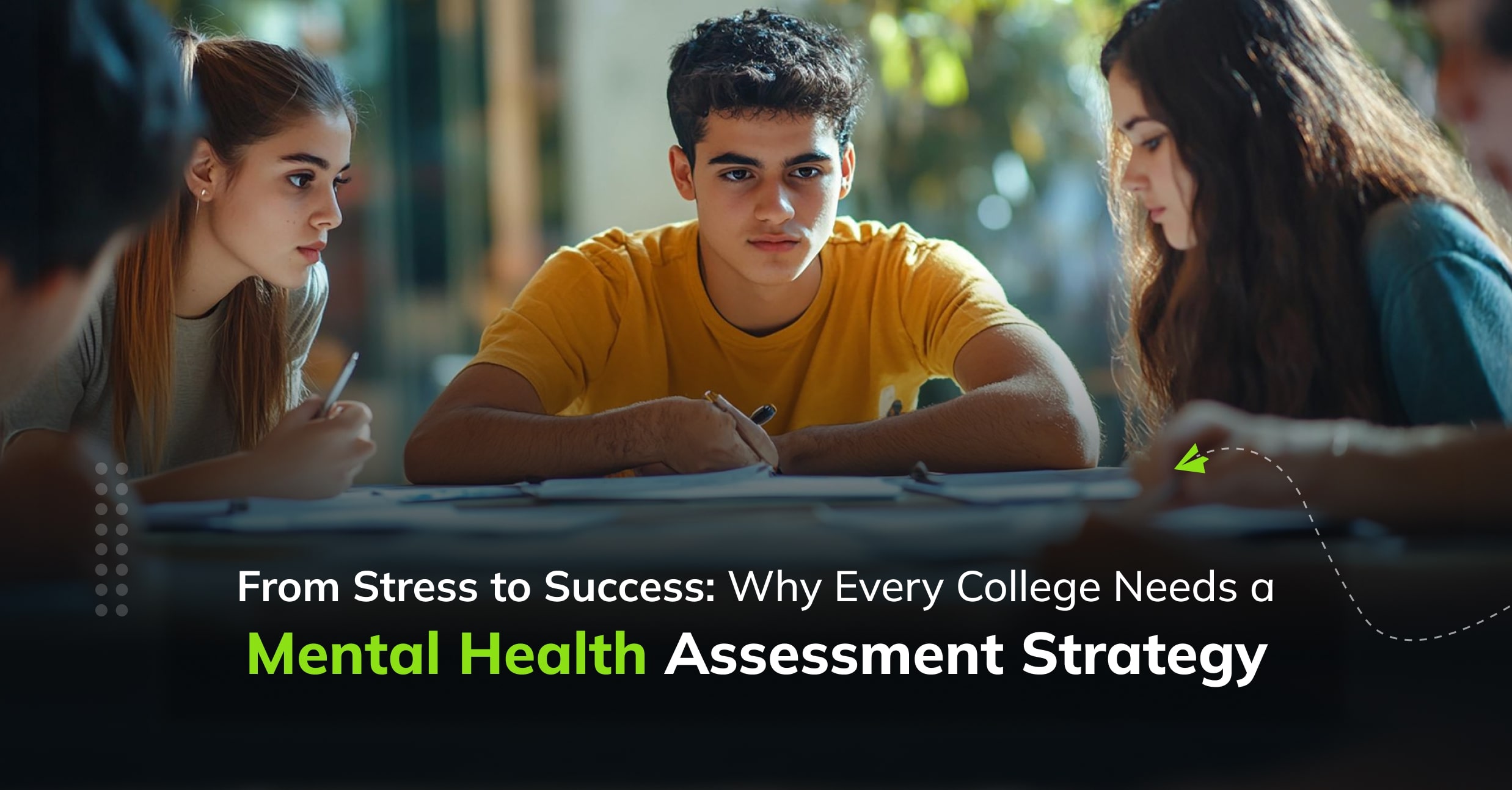From Stress to Success: Why Every College Needs a Mental Health Assessment Strategy
Students need more than just grades in the present world. They need care, connection, and a sense of well-being to truly thrive in academic life. Many colleges primarily rely on counselling centres and awareness drives. But with rising levels of stress, burnout, and emotional fatigue among students, these reactive methods are not effective anymore. A structured mental health assessment strategy is now essential. Let’s see why.
How traditional support systems work
Most college mental health programs are passive. Students are expected to reach out when they’re struggling. But stigma, fear of judgment, or lack of awareness often prevent them from doing so. These systems also lack consistency and scalability. This is where well-being assessments stand out by offering a proactive, data-driven, and holistic approach to student mental health.
What Makes HireMee’s Student’s General Well-being Assessments Unique?
Student’s General Well-being Assessment is designed to address the complexity of modern mental health challenges. It goes beyond just identifying stress or anxiety. It evaluates six key dimensions of well-being using the PERMAH model:
Positive Emotions -Enhancing joy and reducing stress through emotional resilience
Engagement –Identifying strengths to boost academic focus and satisfaction
Relationships –Encouraging supportive peer and faculty connections
Meaning –Helping students align their academic journey with personal goals
Accomplishment –Recognising progress to build motivation and confidence
Health –Addressing physical wellness as a foundation for mental strength
A deeper and structured understanding
In contrast to one-time counselling sessions or informal check-ins, Student’s General Well-being Assessment provides a structured process. It helps institutions:
. Detect early signs of burnout and emotional exhaustion
. Offer timely, personalised interventions
. Track student well-being trends over time
. Build a culture of openness and support
These features make the process scalable, inclusive, and effective across diverse student populations.
Tailored to campus needs
Another key advantage is adaptability. The assessment can be customised to reflect the unique stressors faced by different student groups, whether it is academic pressure, social isolation, or career uncertainty. This makes sure that support is not just available, but relevant and impactful.
Clarity through reports
Each student receives a confidential report highlighting their well-being status and areas for improvement. For college administrators and counsellors, aggregated insights reveal patterns such as high-stress periods during exams or specific departments needing more support. This kind of data-driven clarity is something traditional systems rarely offer.
There is no debate about the fact that human empathy is essential in mental health care, but well-being assessments can bring consistency, early detection, and actionable insights that traditional methods cannot deliver. Start prioritising the mental well-being of students more effectively with Student’s General Well-being Assessment.







